David Koch, Businessman, Political Activist, and Philanthropist, Dead At 79
David Koch, one-half of the Koch Brothers and the head of a wide-ranging business empire who also went on to have a huge impact on politics and cultural philanthropy, has died at the age of 79.
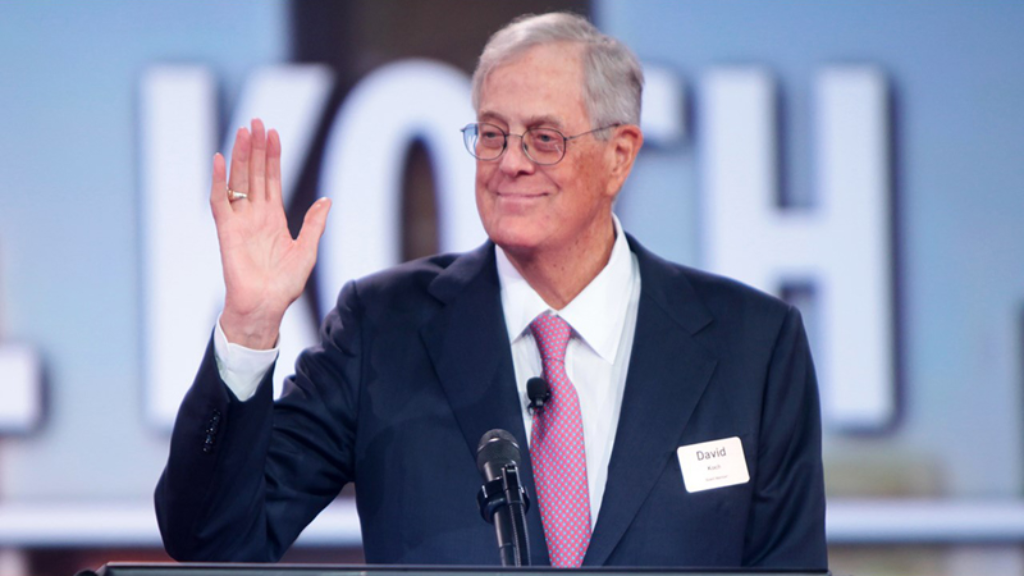
David Koch, one half of the “Koch Brothers,” the principal owners of a multinational conglomerate of corporations that owns businesses that impact the daily lives of Americans whether they’re aware of it or not who also played a role as a philanthropist to the arts and medical fields as well as a political activist who once ran for Vice-President of the United States, has died at the age of 79:
David H. Koch, a billionaire industrialist and philanthropist whose fortune and hard-edge libertarianism had a profound effect on American politics while making him an uncommonly polarizing figure, died Aug. 23 at his home in Southampton, N.Y. He was 79.
Mr. Koch, who had suffered from prostate cancer for many years, announced in 2018 that he was stepping down from his positions at Koch Industries and the Koch political and philanthropic networks. His death was announced in a statement from Koch Industries.
Mr. Koch and an older brother, Charles, transformed the Wichita-based family company, which they had taken over from their father, Fred, in the 1960s, into a global conglomerate with interests in businesses from petroleum to ranching to a wide variety of consumer products, such as Dixie cups and Stainmaster carpeting.
Koch Industries became the second-largest privately held company in the United States, and by 2018, Charles and David Koch were estimated to be worth in the neighborhood of $60 billion each.
As a patron of charities, Mr. Koch ranked among the most openhanded donors of his era, disbursing more than $1 billion to cultural and medical nonprofit organizations. But it was through a network of well-financed advocacy groups that the Koch brothers achieved their greatest distinction, spreading an uncompromising anti-government gospel that moved the Republican Party steadily to the right.
They inherited a deep mistrust of big government from their father, a founding member of the arch-conservative John Birch Society. Mr. Koch said he fervently believed that minimal government led to more prosperity and freedom for all people.
“It’s something I grew up with,” he told journalist Brian Doherty, editor of the libertarian magazine Reason, “a fundamental point of view that big government was bad, and imposition of government controls on our lives and economic fortunes was not good.”
In 1980, Mr. Koch was the Libertarian Party’s nominee for vice president on a ticket with corporate lawyer Ed Clark. He aligned himself with a platform that called for the abolition of all corporate and personal income taxes, Medicare, and child labor laws. When the ticket flopped at the ballot box, garnering 1 percent of the popular vote, the brothers pinned their political ambitions on the ascendant Reagan-era GOP.
Impact on politicsThe Kochs’ chief instruments were Americans for Prosperity, a nonprofit group founded in 2004 and technically dedicated to “social welfare,” and semiannual conclaves that attracted some of the wealthiest conservative donors in the country. In the 2016 election cycle, the Koch network spent nearly $900 million, not much less than the total laid out by the Republican Party.
“It’s hard to think of another set of individuals who have had such an impact on our political system who haven’t been elected officials,” said Alexander Hertel-Fernandez, a Columbia University political scientist who has studied the Kochs.
(…)
David Hamilton Koch was born in Wichita on May 3, 1940. His mother, the former Mary Robinson, was a well-known figure in Wichita society, and his father was a chemical engineer and entrepreneur who prospered in oil refining.
His father was a strict disciplinarian who insisted that his four sons — Frederick, Charles and fraternal twins David and William — perform manual labor to foster a strong work ethic.
David Koch graduated in 1958 from Deerfield Academy, a prep school in Massachusetts, and then entered the Massachusetts Institute of Technology, his father’s alma mater, which was also attended by his brothers Charles and William.
He studied chemical engineering, receiving a bachelor’s degree in 1962 and a master’s degree in 1963. As an undergraduate, Mr. Koch, at 6-foot-5, was a standout on the basketball team, setting the school’s single-game scoring record.
After graduation, he worked for a series of consulting firms before joining the family company in 1970. He inherited $300 million in 1967, after his father’s death.
Over the years, the company was plagued by bitter sibling rivalries, with David and Charles Koch pitted against Frederick and William. In 1980, the latter two led an attempted takeover of Koch Industries. The gambit failed and led to years of acrimonious litigation.
In contrast to Charles, who enjoyed a staid family life in Wichita, the headquarters city of Koch Industries, David Koch chose to live for years in New York City. He relished his life as a freewheeling bachelor and frequent party host until what he described as a life-altering event in 1991: his escape from an airplane disaster at Los Angeles International Airport.
He was aboard a commercial airliner that collided with a commuter aircraft on the runway. Mr. Koch’s plane swerved into a building and caught fire. With smoke filling the cabin, he managed to force open a door and exit to safety. Thirty-three people died in the accident, and Mr. Koch suffered serious burns to his lungs.
“This may sound odd, but I felt this experience was very spiritual,” he told New York magazine. “That I was saved when all those others died, I felt that the good Lord spared my life for a purpose. And since then I’ve been busy doing all the good works I can think of.”
An immediate result was that Mr. Koch soon began dating Julia Flesher, who worked in the fashion industry. They married in 1996 and had three children. A complete list of survivors was not immediately available.
After the accident, Mr. Koch embarked on a wide-ranging campaign of philanthropic giving. Among the many beneficiaries of his largesse were various cancer research institutions, which received hundreds of millions of dollars, and the American Museum of Natural History and the Smithsonian Institution.
In 2008, he donated $100 million for the renovation of New York State Theater at Lincoln Center, the home of the New York City Ballet and New York City Opera. In all, Mr. Koch was estimated to have doled out at least $1.3 billion to scientific research and nonprofit arts groups.
Reportedly the wealthiest resident of Manhattan, Mr. Koch for years occupied, among other properties, a Fifth Avenue apartment once owned by former first lady Jacqueline Kennedy Onassis. In 2003, he traded up for a $17 million, 9,000-square-foot Park Avenue duplex.
In his later years, Mr. Koch took considerable pride in what he viewed as the successful effort to bring libertarian ideas into the mainstream, as well as his philanthropic giving. But he marveled at the differing legacies of those two ventures for him.
At the 2011 dedication of a new cancer research facility at MIT, to which he had contributed $100 million, he joked, “I read stuff about me and I say, ‘God, I’m a terrible guy.’ And then I come here and everybody treats me like I’m a wonderful fellow, and I say, ‘Well, maybe I’m not so bad after all.’ “
While the general public may know much about what David and his brother Charles have done with their money, and the controversies that have erupted over that issue, very little is known publicly about how they earned that money and the extent to which their company and its subsidiaries play a role in the daily lives of pretty much every American. While it ostensibly started out as an oil and petrochemicals conglomerate, Koch Industries has expanded over the years to have a hand in a wide variety of industries that play a role in the manufacturing of a wide variety of consumer and manufacturing goods. (This video from MSNBC provides a pretty fair assessment of the reach of Koch Industries.) As a result of the success and reach of the family business, David and his brother Charles were listed as the 11th richest people (tied) in the United States on the most recent iteration of the Forbes list of American billionaires.
Outside of the business world, of course, David and his brother best known as the funders of a wide variety of conservative and libertarian causes dating back to the early 1980s when they played a role in the funding of the libertarian-oriented Cato Institute as well as other organizations. In later years, of course, they became more widely known as the men behind the funding of the American Legislative Exchange Council, Americans for Prosperity, and at least some of the groups behind the founding and expansion of the Tea Party movement in the early years of the Obama Administration. In later years, they moved on to direct donations to candidates for lower Federal offices and causes such as criminal justice reform, bail reform, and other causes that didn’t exactly fit the “right-wing” label that many people had labeled them with. One piece of evidence in that column is the fact that David Koch was the Libertarian Party’s nominee for Vice-President in 1980 and spent several million dollars to help the ticket make an impact nationwide. The Clark/Koch ticket ended up getting just under 1,000,000 votes, which was the highest national vote total for an LP ticket until Gary Johnson’s campaigns in 2012 and 2016 respectively.
One reason for this shift was, as noted above, the rise of Donald Trump, someone that both brothers publicly denounced on more than one occasion. As it was, the Koch Brothers and their affiliated groups had only rarely donated on the Presidential level to begin with, but it was clear from the time he entered the race that Trump represented the antithesis of the libertarian-oriented ideas they believed in, especially on issues such as international trade, immigration, and a wide variety of other issues. Additionally, reports at the time indicated that both brothers had told acquaintances that they found Trump’s rhetoric and behavior to be personally repulsive, which is perhaps not surprising for two men who grew up in the Midwest and ran their multinational empire out of, of all places, Witchita, Kansas.
After Trump won the election, the brothers distanced themselves and their donation strategy from the Republican Party. Charles Koch said in an interview at this time that he’d be willing to support and work with Democrats who support his values, something that can be seen in the recent pushes that Koch-backed groups have made in areas such as criminal justice reform where they’ve allied themselves with groups like the American Civil Liberties Union and Democratic politicians like New Jersey Senator Cory Booker. Additionally, various news outlets such as The Daily Beast and CBS News reported that the network had allied with pro-immigration groups to lobby for efforts to protect beneficiaries of the Deferred Action For Childhood Arrivals (DACA) program as well as other so-called Dreamers who were brought to the United States illegally by their parents when they were children.
Not surprisingly, these new moves by the Koch network generated pushback from the Trumpian wing of the Republican Party. Former Presidential advisers Steve Bannon, for example, told the organizations in the Koch political network that they needed to “shut up” and back the President and the President himself lashed out against the Koch Brothers and their network in a way you’d expect a Democrat to do.
While it will be his impact on domestic politics, for good or ill depending on your point of view, that David Koch will be best remembered, it’s also worth noting that he, along with his brother, donated far more to non-political causes. David, in particular, was a generous benefactor for many arts-related causes in New York City, including the renovation of what is currently known as the David Koch Theater at Lincoln Center, which serves as a home for the New York City Opera as well as hosting various ballet and classical music concerts and performers. That building was completely refurbished in the early 2000s thanks in no small part to a $100 million donation from David Koch. He also donated generously to hospitals, universities, and other non-political venues and operations over the years.
In recent years, David had retired from business and his brother had taken over the day-to-day operation of the family business. In no small part, this was apparently due to the lingering impact of pancreatic cancer that David was diagnosed with several years ago. It is unclear at this time though if that cancer played a role in his death.
Author’s Note: I realize the Koch Brothers are controversial politically, but I would request that people please do their best to keep their comments respectful and in compliance with our comment policy.

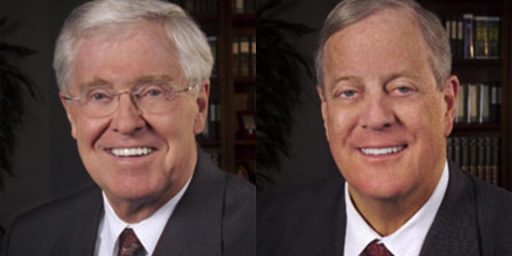
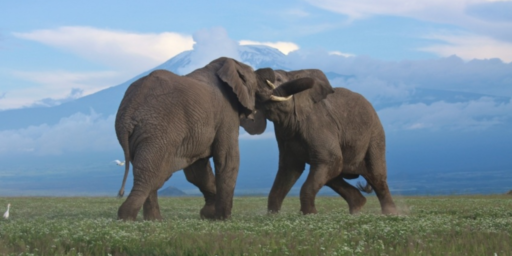
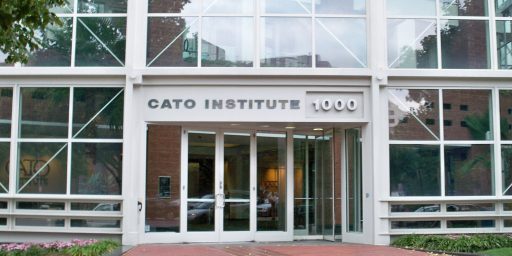
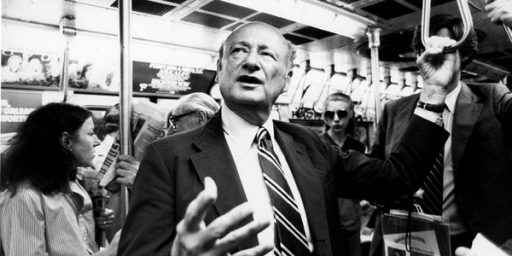
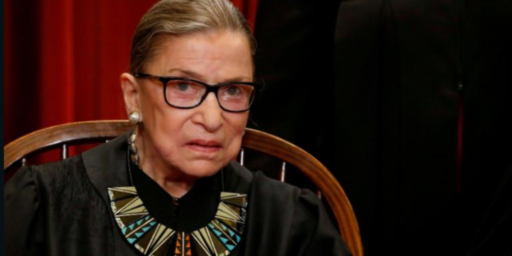
Am tempted to quote the Financial Times editorial on the death of Kim Il-Sung (supposedly quoting someone else on the death of Metternich): “I wonder what he meant by that?”
Oh well. R.I.P., David Koch.
Huh…so evil does die.
Reassuring to know.
Some people don’t deserve our condolences, or solicitude, at a time like this.
Some people, and the number is few, have done significant damage to their country in the interests of personal gain. They should be remembered as such.
E.g. see also; Scalia.
Koch leaves behind a complex and contradictory legacy.
As someone who is working in the criminal justice space, there is no question that via his charitable contributions, he did a lot of work to improve outcomes for people affected by the system. It’s a strange thing to work in a space where common ground was able to be found between the Kochs and Soros.
I cannot say if the good his organizations did in this and other spaces outweighs the harm that I believe they did in others. All I will say is that I’m deeply thankful for his long term commitment to criminal justice reform.
When Scalia died, I noted (on other social media) that while I was very unhappy with his jurisprudence, and that I had no regrets at all that he would no longer serve on the Supreme Court, every human being is more than that, and he’s no exception.
It turns out that in that stream was a friend from DC who had repeatedly attended Mass with Scalia, and had exchanged words with him more than once. He clearly appreciated my sentiments.
I feel much the same about David Koch. I am very glad that he, and his money, is gone from the political scene, and yet he was more than that, as the obit shows. He thought he was helping America, and there are many who do that.
OT and breaking…
The POTUS just made this official statement;
And the Dow dropped over 400 points.
Welcome to Trumpistan…the land Guarneri has dreamt of.
@Jay L Gischer:
@mattbernius:
I respect you both, but I’m sorry…
Scalia, amongst other travesties, appointed a President in direct contravention of our Constitution.
The Koch’s toxic empire has polluted our air and our water and our political system and killed their own workers.
Other than that, Mrs. Lincoln, how did you like the play?
@Jay L Gischer:
“I am very glad that he, and his money, is gone from the political scene.”
Umm, why would that be the case? Did Congress pass a massive increase to the estate tax while I was not looking?
Like most people, he leaves behind a complex legacy. Lots of charitable work and support for the arts. Climate denial but he also funded the BEST program which produced the most comprehensive temperature database and is often cited by me as “even the Koch Brothers found that global warming is real”. He ran on LGBT equality and drug decriminalization in 1980 — 30 years before the Democrats came around on either issue. And the last few years were spent trying to undo the damage he’d done to the GOP and funding criminal justice reform.
Overall, I think it’s a positive legacy. My biggest issue is climate denial, but there are way bigger forced than the Koch Brothers behind that. RIP.
Few in history have done more to coarsen, degrade and corrupt the functioning of our government than the Koch Bros.
Roger Ailes, Sheldon Adelson and now Donald Trump are the only others I can think of that are even in the same league.
Americans for Prosperity, Cato, Mercatus, Heritage, the scourge of virulent TEA gaggles and literally dozens more extremist, drown-government-in-the-bathtub organizations would have either not existed, or would have been of almost no consequence had it not been for Billions in dark money flowing from the Kochs.
Add to that the multi-billion dollar industry of grift that was born out of those preying on the hordes of cognitively challenged these sundry Koch organs were able to coalesce.
Each and every one of the most prominent and most debauched of the GOP apparatchik holding office over the last decade+ had/has one thing in common – they were all mainlining Koch’s dark dollars. Each enriching themselves, at the expense of their constituents, as they implemented the myriad of Koch-crafted policies securing their kleptocracy while opening the planet to plunder.
There is no amount of charity that can than make up for the plague the Koch’s have helped birth.
An all-encompassing toxic wake of corruption and greed is the legacy these two will leave behind, burdening even a generation of Americans not yet born.
“I’ve never wished a man dead, but I have read some obituaries with great pleasure.”
–Clarence Darrow, often misattributed to Mark Twain
@Daryl and his brother Darryl:
I can empathize with your point of view. And I can say that I never expected to work in a space where I’d be interacting directly with groups that are — among others — funded by the Kochs.
Let me just unpack my perspective: The moment you begin working in an area like criminal justice, you have to deal with the world as it is, not the way you want it to be. And that includes looking for spaces where you can collaborate and do good. There are, as always, limits and groups that are a step too far (I cannot accurately describe how much whether or not to try to back/influence the First Step Act tied people across the field up into knots). That’s always a concern and something that we (and most people within the space) think about a lot.
This goes beyond the Kochs. The Arnold Foundation is another major force in the Criminal Justice space — that group is partially founded on Enron money. Or on the other end of the political spectrum, another critical group is the Chan Zuckerberg Initiative. It’s not exactly like Facebook money doesn’t have it’s own difficult past.
As I initially said, I can’t say if the good done with money those groups have contributed to this space outweighs the ills that money has done elsewhere. I do know that it has often helped improve the lives of people who are directly and indirectly impacted by the criminal justice system. And I cannot completely discount those improvements.
@Moosebreath: I don’t know, but it seems likely. Most people with a lot of money don’t embark on a political career spanning 40 years.
@mattbernius:
I completely understand. The Kochs are a major donor to one of our biggest clients, who in turn does ground-breaking biological research with the money. Important work. Critical work.
But a wife who gets beaten should leave her husband, even if he is genuinely nice to her between beatings.
@Daryl and his brother Darryl:
I honestly don’t get how this metaphor applies here… Whose the wife? What does “leaving” mean?
Are you saying that your client should say no to that money? And given that your client is helping fund your organization, are you also helping… maintain the beatings? Or you’re willingly being beat?
Seriously, I’m not being obtuse… I just don’t see how that metaphor works here.
@mattbernius:
Like most analogies…it’s lacking.
We have a several decades long relationship with this particular organization. If I had my way they wouldn’t take the money…but in the real world what non-profit is going to turn down that kind of money?
We all compromise our ideals all the time. That doesn’t make it the right thing to do.
Also…let’s not forget the Koch’s major role in making “the Chosen One” president.
It appears that what I am seeing in the obituary is a person with whom I would have had significant disagreements, had we met, who none the less cared about his country and the people who live in it. As I used to note while I was in Korea, the feature of caring about the country and the people is what separates cruel, despotic men of the order of Park Chung-hee and Chun Doo-whan from Kim Il-sung. For the fact that Koch seems to have genuinely wanted America to be a better place, I offer my condolences to his family and wish him to rest in peace.
@Just nutha ignint cracker:
That’s not clear to me. I can’t tell how much of Koch’s libertarianism was abstract, divorced from actual outcomes for actual people, and how much was driven by an interest in how people’s lives play out. It’s hard to credit the idea that anyone could remain a libertarian while actually caring about human suffering, but self-delusion is so very easy, especially for the wealthy.
One day of hagiography is enough.
David Koch died. He was evil.
Friday – “Evil does die” “Few people have done more to coarsen, degrade, and corrupt the functioning of our government” “I have read some obituaries with great pleasure”
Saturday – “One day of hagiography is enough”
GREED. The greatest hate crime of them all.
The billionaire class should be eliminated entirely from society. Only a small hand-full of these abominable parasites can devastate an entire country. Because of these greedy creatures we all must struggle so that these few can wallow in extreme and excessive luxury. Robbing the toil and labor of millions with the wealth they themselves did not earn and do not deserve. Eliminating these ABOMINABLE and greedy parasites would end world poverty and stop most ‘if not all’ wars. If People were aware of just how much these greedy creatures rob from us all, the entire population would be screaming for their heads..